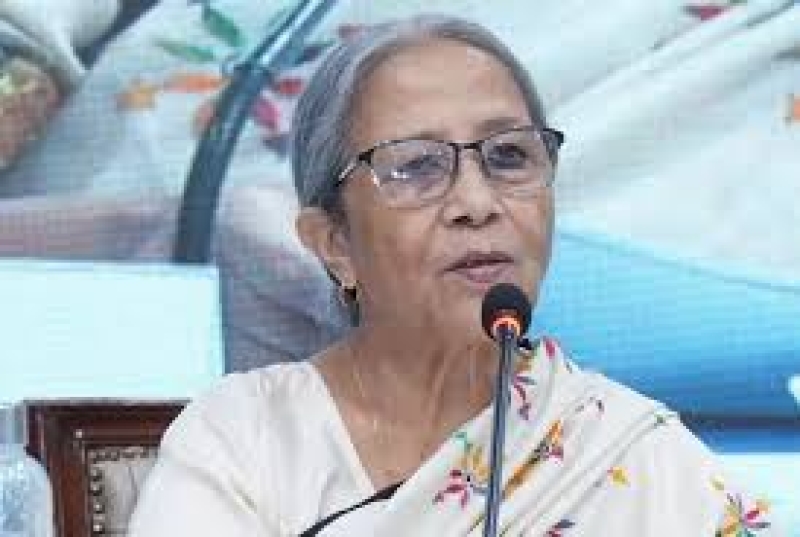- US Supreme Court Voids Donald Trump Global Tariffs |
- India looks forward to engaging with new govt in Bangladesh |
- No more running after doctors, services to reach doorsteps |
- ‘Revolutionary’ shift in economy, stock market soon: Amir Khashru |
- Stocks end week sharply lower as DSE, CSE indices tumble |
Bangladesh wastes 21mn tonnes of food annually:Farida

Bangladesh loses more than 21 million tonnes of food annually across the supply chain, from farms to dining tables, Fisheries and Livestock Adviser Farida Akhter said on Monday.
She said the absence of proper storage facilities, poor price management and inadequate infrastructure are the main reasons behind such massive food losses, despite farmers’ hard work in production.
Farida was speaking at a seminar titled ‘Towards Zero Food Waste: Building a Sustainable Food Supply System in Bangladesh’ held at a city hotel.
The Centre for Policy Dialogue (CPD), the Royal Danish Embassy in Dhaka, the Food and Agriculture Organization (FAO), the World Bank, and the World Food Programme (WFP) jointly organised the event.
Citing World Bank and WFP assessments, she said about 15.5 to 16 million people in Bangladesh still suffer from acute food insecurity, a situation likely to persist until the end of 2025.
“The government is trying to increase and ensure safe food production, but at the same time, a massive amount of food is wasted — whether it is milk, eggs, meat or fish,” the adviser said.
She highlighted that indiscriminate fishing also contributes to waste. “When targeting hilsa and other species, fishing boats end up discarding nearly two-thirds of their catch back into the sea, causing serious damage to biodiversity and resources.”
Anders Karlsen, Chargé d’Affaires of the Danish Embassy in Bangladesh, said globally, one-third of all food produced is wasted.
“The land used to produce this wasted food is larger than China, and in the end, nobody eats it,” he said, stressing that along with food, agricultural land and greenhouse gases are also wasted in the process.
“The best time to take action was yesterday. If not, then it must be today,” Karlsen urged.
FAO Deputy Representative Dia Sanou explained the local and global impacts of food waste.
“The world produces enough food to feed 1.5 times the global population, yet due to poor distribution, weak infrastructure and, most importantly, food waste, hunger and malnutrition persist. Despite having surpluses, the most vulnerable people still go without adequate food,” he said.
WFP Bangladesh Deputy Country Director Jesse Wood said studies reveal that 8–15% of paddy and 20–40% of fruits and vegetables are wasted after harvest, with an estimated financial loss of $2.4 billion annually.
He noted that despite being a major producer of vegetables, fish and other essentials, Bangladesh still imports these items due to inadequate storage and cold-chain facilities.
“This is a missed opportunity for both farmers and the economy,” he added.
CPD Executive Director Dr Fahmida Khatun pointed to the environmental costs, saying, “When we waste food, we also deplete scarce environmental resources. As one of the most climate-vulnerable countries, Bangladesh must prioritise reducing food waste.”
Government officials, private sector innovators, experts and development partners attended the seminar and stressed the need for having effective strategies to minimise food wastes in Bangladesh, reports UNB.

